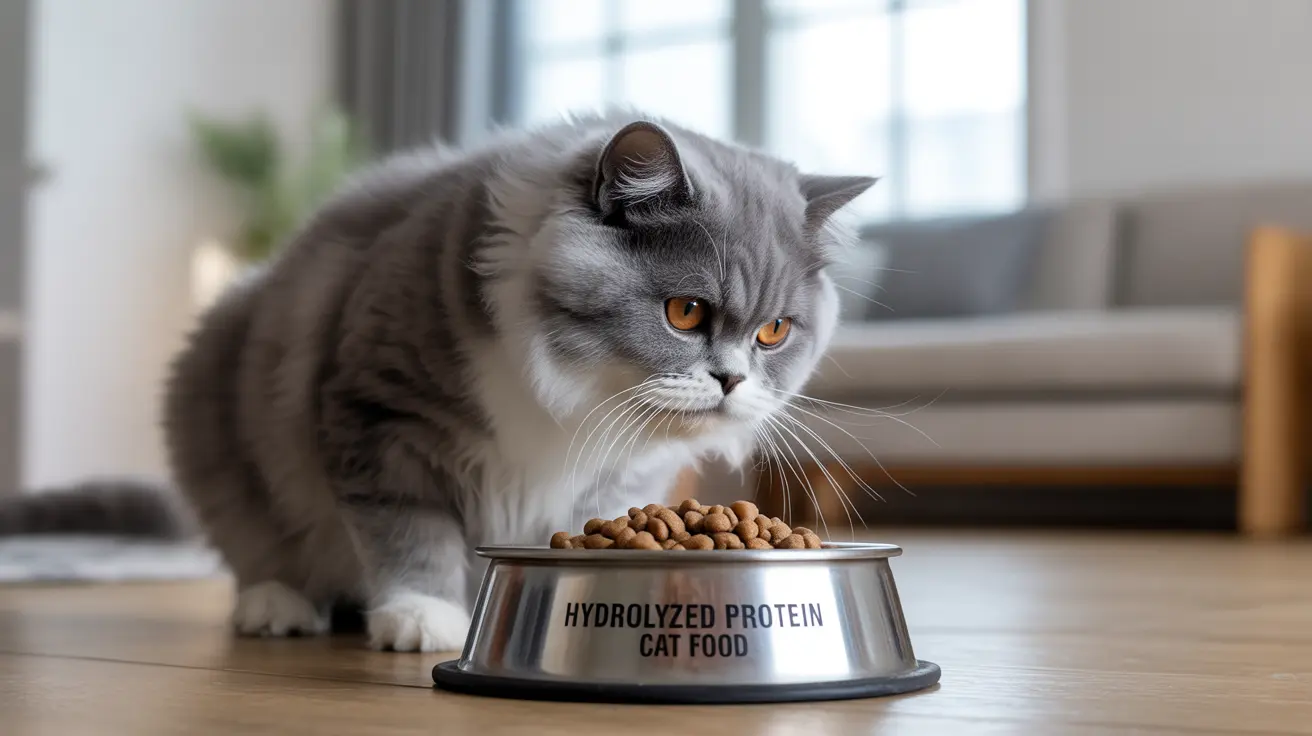For cats with food sensitivities or digestive issues, finding the right diet can be challenging. Hydrolyzed protein cat food has emerged as a specialized solution, offering hope for felines struggling with food allergies and gastrointestinal problems. This comprehensive guide will explore what hydrolyzed protein cat food is, how it works, and why veterinarians often prescribe it for cats with specific health conditions.
Understanding Hydrolyzed Protein Cat Food
Hydrolyzed protein cat food is a veterinary-prescribed diet where proteins have been scientifically broken down into smaller components through a process called hydrolysis. This breakdown makes the proteins less likely to trigger allergic reactions and easier for cats to digest. Think of it as pre-digesting the proteins before they reach your cat's system.
The proteins in these specialized diets are broken down into such small pieces that your cat's immune system typically doesn't recognize them as potential allergens. This makes hydrolyzed protein cat food particularly valuable for cats with food allergies or sensitivities.
How Hydrolyzed Protein Cat Food Works
The science behind hydrolyzed protein cat food is fascinating. When proteins are hydrolyzed, they're broken down into tiny peptides and amino acids through a chemical process. These smaller molecules are typically too small to trigger an immune response, effectively "flying under the radar" of your cat's immune system.
Most hydrolyzed diets use a single protein source, such as chicken, soy, or egg, which has been broken down through this special process. This approach helps minimize the risk of allergic reactions while ensuring your cat still receives all necessary nutrients.
Benefits for Cats with Special Dietary Needs
Hydrolyzed protein cat food offers several significant benefits for cats with specific health conditions:
- Reduced allergic reactions and inflammation
- Improved digestive comfort and nutrient absorption
- Better management of inflammatory bowel disease (IBD)
- Fewer gastrointestinal upset episodes
- Support for skin and coat health
When to Consider Hydrolyzed Protein Cat Food
Your veterinarian might recommend hydrolyzed protein cat food if your cat shows signs of:
- Chronic skin irritation or itching
- Frequent vomiting or diarrhea
- Diagnosed food allergies
- Inflammatory bowel disease
- Difficulty digesting regular cat food
Important Considerations and Limitations
While hydrolyzed protein cat food can be highly beneficial, there are some important factors to consider:
- Requires a veterinary prescription
- Generally more expensive than regular cat food
- May have different taste and texture that some cats resist
- Not intended as a permanent solution unless medically necessary
- Should be monitored by a veterinarian
Frequently Asked Questions
What is hydrolyzed protein cat food and how does it help cats with food allergies?
Hydrolyzed protein cat food contains proteins that have been broken down into smaller molecules that are less likely to trigger allergic reactions. This makes it easier for cats with food allergies to digest their food without experiencing adverse immune responses.
How do hydrolyzed protein diets improve digestion and nutrient absorption in cats?
The pre-broken-down proteins in hydrolyzed diets are easier for cats to digest and absorb. This reduced digestive workload can lead to better nutrient absorption and fewer gastrointestinal issues.
Are hydrolyzed protein cat foods effective for managing inflammatory bowel disease (IBD) in cats?
Yes, hydrolyzed protein cat foods can be effective in managing IBD in cats. The smaller protein molecules reduce intestinal inflammation and make digestion easier, often leading to improved symptoms in cats with IBD.
What are the potential side effects or challenges of feeding my cat hydrolyzed protein food?
Common challenges include higher cost, potential palatability issues, and the need for strict dietary compliance. Some cats may also experience initial digestive adjustments when switching to hydrolyzed protein food.
Do I need a veterinary prescription to feed my cat hydrolyzed protein cat food and how long should my cat stay on this diet?
Yes, hydrolyzed protein cat food requires a veterinary prescription. The duration of use depends on your cat's specific condition and response to the diet, which should be monitored and adjusted by your veterinarian.
Conclusion
Hydrolyzed protein cat food represents an important advancement in veterinary nutrition, offering relief for cats with food sensitivities and digestive issues. While it requires careful consideration and veterinary oversight, it can significantly improve the quality of life for cats with specific dietary needs. Always consult with your veterinarian to determine if hydrolyzed protein cat food is the right choice for your feline companion.






